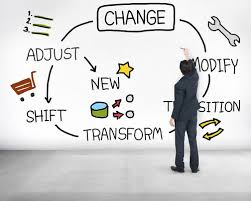Mindfulness is a term that has been gaining popularity in the last few years. This ancient Buddhist practice is all about being fully present in the moment and paying attention to what is happening inside and outside of us. And while mindfulness may seem like a personal practice, it can actually have significant benefits in the business world as well. In this article, expert Sherief Abu-Moustafa discusses how mindfulness can help enhance leadership skills and provides practical tips for incorporating mindfulness into your daily work routine.
1. Developing Self-Awareness
Self-awareness is a crucial aspect of mindfulness that can significantly impact personal and professional growth. Through the ability to recognize and be present in one’s thoughts, emotions, and actions, individuals become more conscious of their strengths, weaknesses, and blind spots. This heightened awareness can lead to a better understanding of one’s tendencies and how they come across to others. For individuals in leadership roles, developing self-awareness enables them to adjust their communication style and behavior to connect with their team members effectively. By recognizing these areas for improvement, leaders can inspire their teams to achieve their goals and ultimately become better leaders.
2. Improving Decision-Making
Effective decision-making is an essential skill for any leader, as their choices can significantly impact the organization’s success. Mindfulness can be a powerful tool in improving decision-making skills. By practicing mindfulness, leaders can develop a heightened focus and clarity to process information more effectively. Rather than rushing into decisions without proper consideration, mindful leaders take the time to weigh all options, identify potential risks and challenges, and choose the best course of action based on the available data. This approach can lead to better outcomes and a more successful enterprise in the long run.
3. Enhancing Emotional Intelligence
Emotional intelligence is the ability to understand and manage your emotions and those of others. This is a crucial skill for leaders, as it allows them to connect with their team members on a deeper level and build stronger relationships. Mindfulness can help enhance emotional intelligence by increasing your awareness of your emotions and improving your ability to regulate them. This can help you respond more effectively to challenging situations and communicate better with your team.
4. Fostering Creativity And Innovation
Innovation is essential for businesses to stay competitive and meet the ever-evolving needs of their customers. Mindfulness can help foster creativity and innovation by allowing you to approach problems from a different perspective. When you practice mindfulness, you become more aware and present in the moment, leading you to recognize the small details that others may miss. This heightened sense of awareness can spark new ideas and ways of thinking. Furthermore, tapping into your intuition allows you to make intuitive decisions that may lead to innovative products or services. With a workplace culture that encourages and fosters creativity, mindfulness can be a powerful tool to help businesses stay ahead of the curve and provide solutions that meet the evolving needs of their customers.
5. Encouraging A Positive Work Culture
Finally, mindfulness can help create a more positive work culture by reducing stress and anxiety, improving communication, and promoting empathy. When leaders practice mindfulness, they set an example for their team members, creating a ripple effect that can improve the organization’s overall morale. Mindfulness can also help reduce conflict and create a sense of psychological safety, where employees feel comfortable sharing their thoughts and ideas without fear of retribution.
Final Thoughts
In conclusion, mindfulness is a powerful tool for enhancing leadership skills and creating a more successful business. By incorporating mindfulness into your daily routine, you can develop greater self-awareness, improve decision-making, enhance emotional intelligence, foster creativity and innovation, and encourage a more positive work culture. So, whether you are a business owner, manager, or team leader, consider how mindfulness can help you become a more effective leader and drive success in your organization. Sherief Abu-Moustafa encourages you to take the first step towards mindfulness today and see the positive impact that it can have on your leadership skills and your team.





